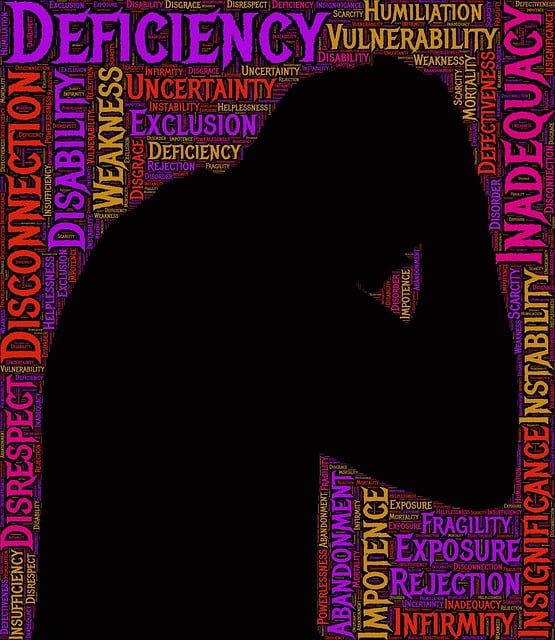Boulder's mental health education for polyamorous and open relationships starts with a community needs assessment, setting clear goals, and designing tailored programs like Mental Wellness Coaching. This strategic approach addresses local challenges, enhances emotional intelligence, and promotes healthy relationship dynamics, contributing to the community's overall mental wellness over time. Boulder Polyamorous and Open Relationships Therapy (BPORT) leverages journaling exercises and confidence-boosting strategies to help individuals navigate complex interpersonal dynamics, fostering resilience and improving mental health both individually and collectively within the community.
“Uncovering the intricacies of mental health education within the unique context of Boulder Polyamorous and Open Relationships Therapy, this article delves into strategic program design. We explore the essential steps of assessing community needs, setting targeted goals, and crafting an engaging curriculum. From evidence-based practices to interactive sessions, learn how to structure a comprehensive program.
Moreover, we discuss implementation strategies, evaluation methods, and continuous improvement techniques. By understanding participant feedback and community dialogue, programs can adapt to address mental health concerns effectively, ensuring relevance and impact in Boulder’s diverse relationships landscape.”
- Assessing Needs and Setting Goals for Mental Health Education
- – Identifying key areas of focus in mental health education within the context of Boulder Polyamorous and Open Relationships Therapy
- – Understanding community needs and tailoring program content to address them
Assessing Needs and Setting Goals for Mental Health Education

Effective mental health education program design begins with a thorough assessment of community needs and setting clear, achievable goals. This process involves understanding the unique challenges faced by individuals within a specific context, such as Boulder’s diverse population including those in polyamorous and open relationships seeking therapy. By evaluating local trends and identifying gaps in resources, educators can tailor programs to address pressing mental health concerns, ensuring relevance and impact.
For instance, developing Mental Wellness Coaching Programs that incorporate Confidence Boosting techniques and Communication Strategies could be highly beneficial. Setting specific goals like enhancing emotional intelligence or promoting healthy relationship dynamics through these programs will guide the curriculum design and evaluation process. This strategic approach ensures that education efforts are not only responsive to current needs but also contribute to the long-term improvement of mental wellness in Boulder’s community, fostering a supportive environment for all individuals, regardless of their relationship styles.
– Identifying key areas of focus in mental health education within the context of Boulder Polyamorous and Open Relationships Therapy

In the context of Boulder Polyamorous and Open Relationships Therapy (BPORT), mental health education programs must address unique considerations that reflect the specific needs and challenges faced by individuals within polyamorous and open relationships. Key areas of focus should include fostering emotional well-being promotion techniques tailored to navigate complex interpersonal dynamics, as these relationships often involve multiple partners and ongoing communication. BPORT can leverage Mental Wellness Journaling Exercises as a guidance tool to help individuals process their experiences, track emotional shifts, and cultivate self-awareness—all vital components for maintaining mental health in non-traditional relationship structures.
Additionally, confidence boosting strategies are essential to empower individuals within polyamorous communities to navigate societal stigma and personal doubts about their chosen lifestyles. By integrating these techniques into education programs, BPORT can help participants develop resilience against external judgment and internalized negativity, thereby enhancing overall mental wellness. This tailored approach ensures that the unique emotional landscapes of polyamorous and open relationships are addressed effectively, contributing to both individual and communal mental health in Boulder.
– Understanding community needs and tailoring program content to address them

Effective mental health education program design requires a deep understanding of the community’s unique needs and challenges. By tailoring program content to address these specific issues, initiatives can better resonate with and benefit participants. For instance, in a diverse community like Boulder, Colorado, where polyamorous and open relationships are increasingly common, specialized programs that incorporate cultural sensitivity in mental healthcare practice can be invaluable. These tailored programs not only provide mental wellness resources but also foster an environment of inclusion and support for diverse relationship dynamics.
Community outreach program implementation should reflect the varied makeup of the community it serves. Incorporating feedback from local stakeholders and leveraging relevant case studies, such as those involving Boulder Polyamorous and Open Relationships Therapy, can ensure that educational content is both relevant and impactful. This approach not only enhances mental wellness but also fosters a sense of belonging among participants, aligning with broader goals of cultural sensitivity in mental healthcare practice.
Boulder Polyamorous and Open Relationships Therapy highlights the critical need for tailored mental health education programs. By assessing community needs and setting specific goals, we can create impactful initiatives that address unique challenges within these relationships. This strategic approach ensures that educational content is not only relevant but also effectively meets the diverse psychological requirements of those seeking support in polyamory and open relationships.














